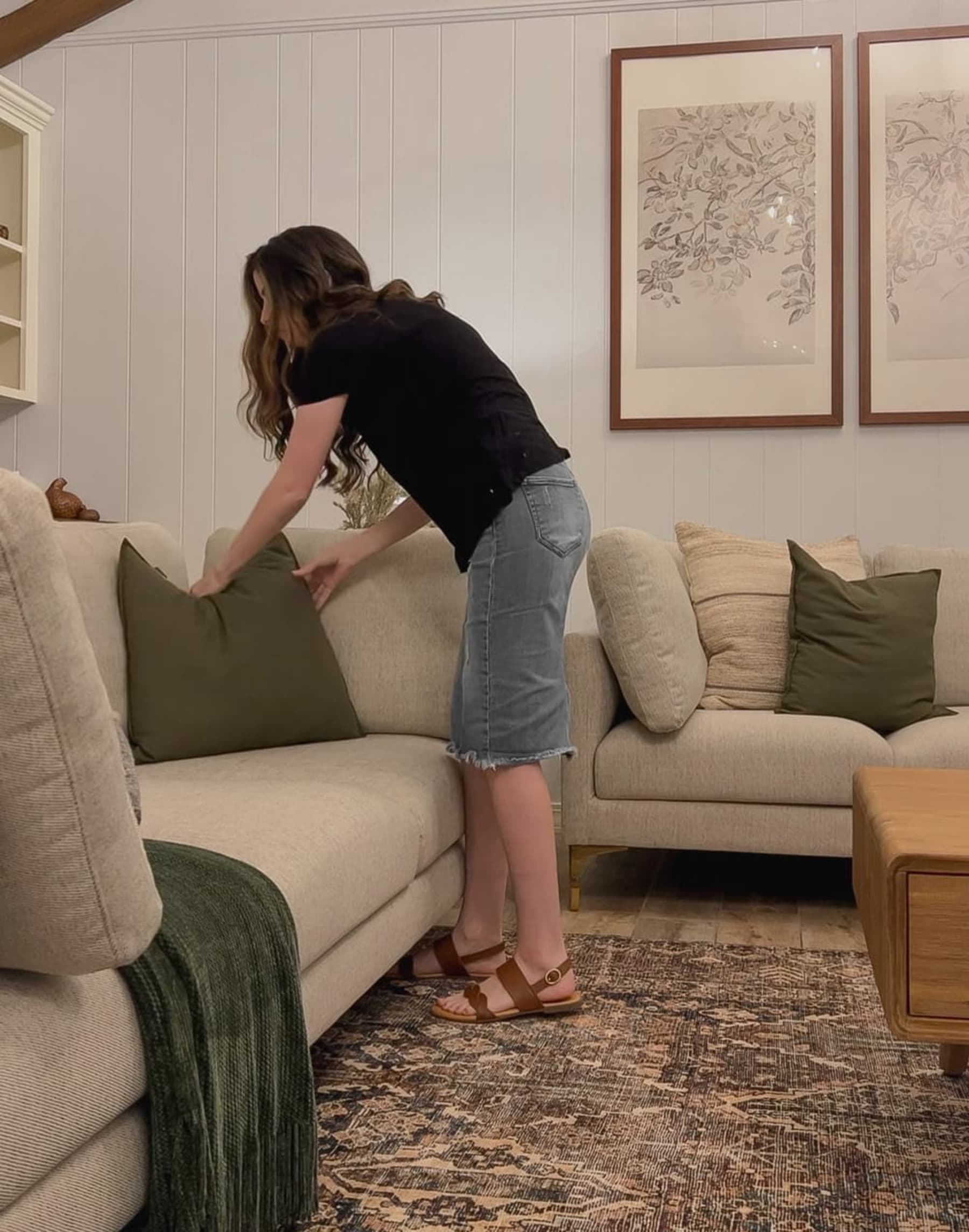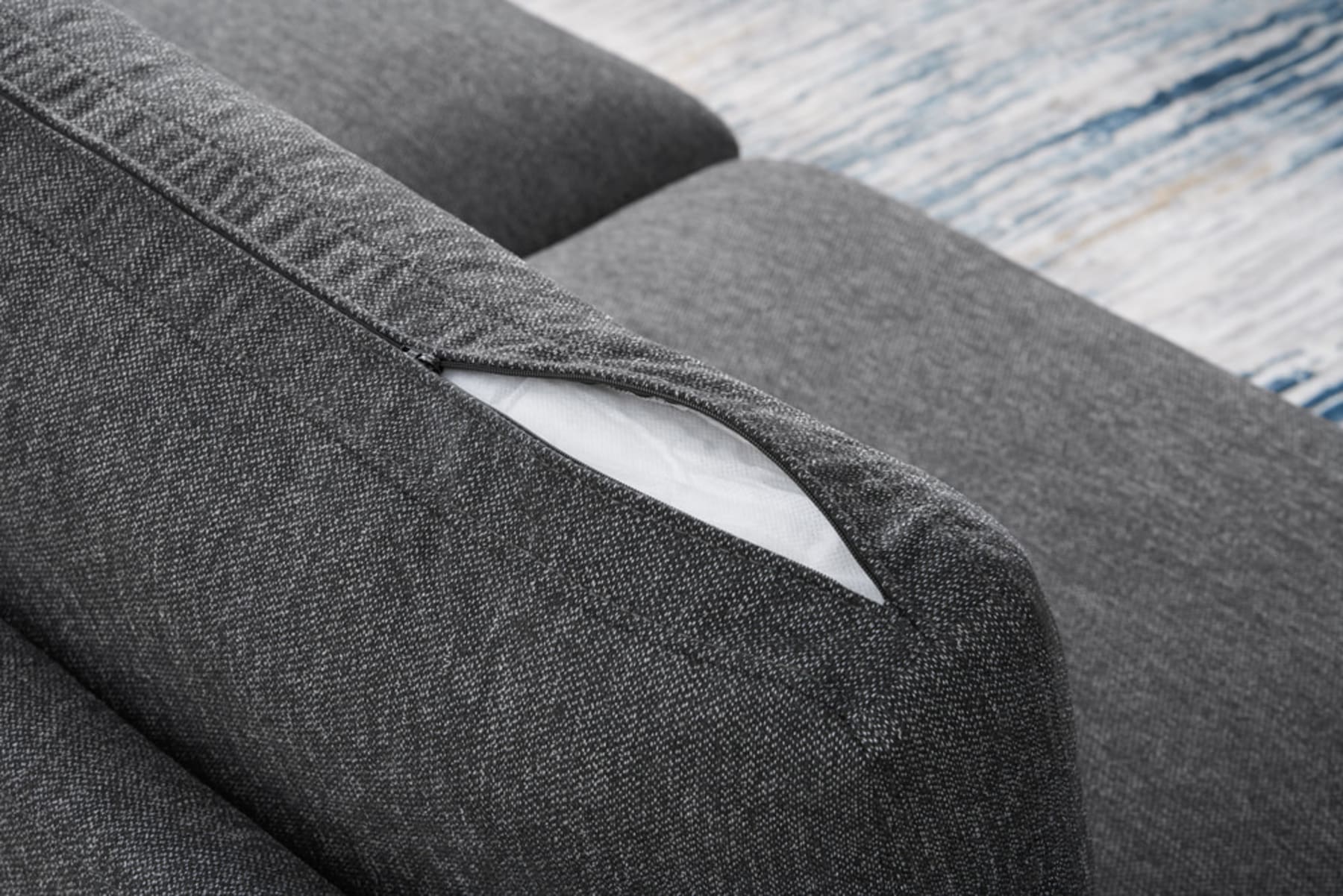
How to Fix Sagging Sofa Cushions
Is your once-plush sofa starting to feel a bit lackluster? Over time, even the most luxurious couch cushions can lose their firmness and develop unsightly sags.
But before you rush to replace your beloved furniture, why not consider giving those sagging couch cushions a new lease on life? With a little know-how and some DIY magic, you can restore your sofa to its former comfort and extend its lifespan.
In this guide, we'll show you 6 ways to fix sagging couch cushions and enjoy cosy seating once more.
What causes sofa cushions to sag?
Before we delve into the solutions, it's essential to understand what causes your couch cushions to sag. Several factors can contribute to this problem:
Wear and tear: With daily use, sofa cushions are subjected to constant pressure, leading to compression and eventual sagging.
Poor quality foam: Low-quality foam cushions are more prone to sagging over time.
Improper weight distribution: Sitting in the same spot repeatedly can create uneven wear and cause sagging.
Age: As your sofa gets older, its cushions can naturally lose their resilience.
Now that you know what's causing the issue, let's explore some effective solutions to rejuvenate your sagging couch cushions.
6 ways to fix sagging couch cushions
Rotate and flip your cushions
A simple but effective way to combat sagging is to rotate and flip your couch cushions regularly.
Over time, people tend to sit in their favourite spots on the couch, causing uneven wear on the cushions. Rotating and flipping the cushions ensures that different parts of the cushion receive equal pressure. You also allow the sofa filling to recover its original shape.
This evens out the wear and tear and distributes the filling, preventing one side from becoming significantly more compressed than the others, allowing it to regain its loft and resilience.

@hannah.is.home keeps the sofa cushions in good shape. Pictured: The Adams 3-Seater Sofa.
Beat and fluff the cushions
Beating or fluffing the cushions is another quick way to improve the appearance and comfort of sagging couch cushions. While this may sound violent and damaging, beating or fluffing the cushions simply involves lightly hitting or shaking them to redistribute the filling, such as foam, feathers, or down, inside the cushions.
This helps to restore the cushions' shape, plumpness, and loft by loosening compacted material and reducing the appearance of sagging.

@lindseypedey creates a contrast with striking pillows on the Hamilton 3-Seater Sofa.
Replace the foam inserts
If you find that your sofa is losing its firmness, remove the existing foam insert core and replace it with a new one. This is a cost-effective solution to revive your cushions compared to buying new cushions or a sofa.
Replace the inserts with high-density foam as it is durable and can withstand regular use over an extended period. This makes it a long-lasting solution that can significantly extend the lifespan of your couch cushions, reducing the need for frequent replacements or repairs.
Re-stuff the filling
Feather and down sofa fillings are a popular choice as they offer cloud-like comfort - but they are extremely high maintenance and require regular fluffing to maintain their loft and prevent clumping.
If you’re experiencing sagging in your feather or down-filled sofa, consider restuffing the cushions or adding additional filling such as foam. After you’ve filled the sofa cushions, remember to fluff them and shake them well to evenly distribute the filling and keep the cushions firm for longer.

Several pieces from our sofa collection feature removable cushions, which makes re-stuffing easy. Pictured: The Pebble 3-Seater Sofa in Shadow Grey.
Use batting or fibrefill
In some cases, all your sagging couch cushions need is a bit of extra padding. This is where batting or fibrefill can be really helpful to breathe life into your sofa cushions.
Batting is a soft, fluffy material typically made of polyester or cotton. It comes in sheet or roll form and is often used in quilting, upholstery, and crafts. Fibrefill, also known as polyester fibrefill or polyfill, is a synthetic material made from polyester fibres. It's commonly used for stuffing cushions, pillows, and plush toys.
Add these fillings beneath the cushion cover to add volume and restore the plumpness of the cushions, providing a more supportive feel and achieving a fuller look.
Invest in cushion supports
Cushion supports are designed to provide additional support and lift to sagging couch cushions. They typically come in the form of rigid or semi-rigid panels or inserts that can be placed beneath the cushions to restore their shape and firmness.
You simply slide them beneath the sagging cushion, and they provide instant support. They help to evenly distribute the weight across the cushion, preventing uneven wear and helping the cushion regain its original shape - which can reduce the likelihood of future sagging.
Sagging couch cushions don't have to signal the end of your favourite sofa. Before you contemplate replacing your furniture, give these solutions a try and savour the satisfaction of sitting on a couch that feels brand new again!
FAQs
Can I prevent my couch cushions from sagging in the first place?
While it's challenging to prevent sagging entirely, you can minimise it by rotating and flipping cushions regularly, using cushion supports, and maintaining even weight distribution. Investing in a high-quality sofa from a good furniture retailer can also help in ensuring your sofa filling stays firm for longer.
How often should I rotate and flip my couch cushions?
It's a good practice to rotate and flip your cushions every few months or as needed, depending on your usage patterns. Regularly changing their orientation helps distribute wear and maintain even support.
Can sagging couch cushions be repaired even if they have visible indents?
Yes, cushions with visible indents can often be repaired by adding support, replacing the foam inserts, or using other suitable methods to restore their shape and firmness.